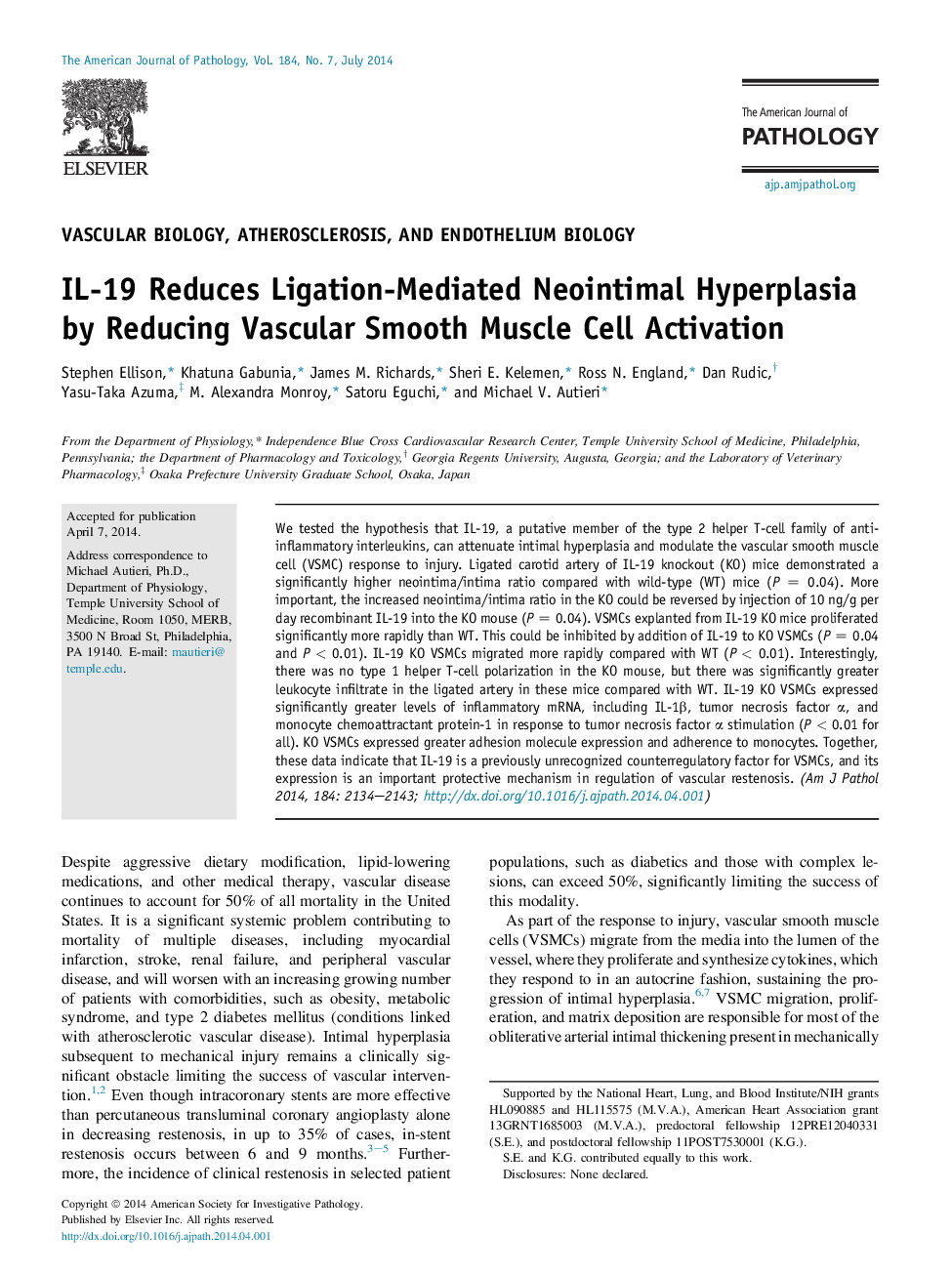| Article ID | Journal | Published Year | Pages | File Type |
|---|---|---|---|---|
| 5934599 | The American Journal of Pathology | 2014 | 10 Pages |
We tested the hypothesis that IL-19, a putative member of the type 2 helper T-cell family of anti-inflammatory interleukins, can attenuate intimal hyperplasia and modulate the vascular smooth muscle cell (VSMC) response to injury. Ligated carotid artery of IL-19 knockout (KO) mice demonstrated a significantly higher neointima/intima ratio compared with wild-type (WT) mice (P = 0.04). More important, the increased neointima/intima ratio in the KO could be reversed by injection of 10 ng/g per day recombinant IL-19 into the KO mouse (P = 0.04). VSMCs explanted from IL-19 KO mice proliferated significantly more rapidly than WT. This could be inhibited by addition of IL-19 to KO VSMCs (P = 0.04 and P < 0.01). IL-19 KO VSMCs migrated more rapidly compared with WT (P < 0.01). Interestingly, there was no type 1 helper T-cell polarization in the KO mouse, but there was significantly greater leukocyte infiltrate in the ligated artery in these mice compared with WT. IL-19 KO VSMCs expressed significantly greater levels of inflammatory mRNA, including IL-1β, tumor necrosis factor α, and monocyte chemoattractant protein-1 in response to tumor necrosis factor α stimulation (P < 0.01 for all). KO VSMCs expressed greater adhesion molecule expression and adherence to monocytes. Together, these data indicate that IL-19 is a previously unrecognized counterregulatory factor for VSMCs, and its expression is an important protective mechanism in regulation of vascular restenosis.
